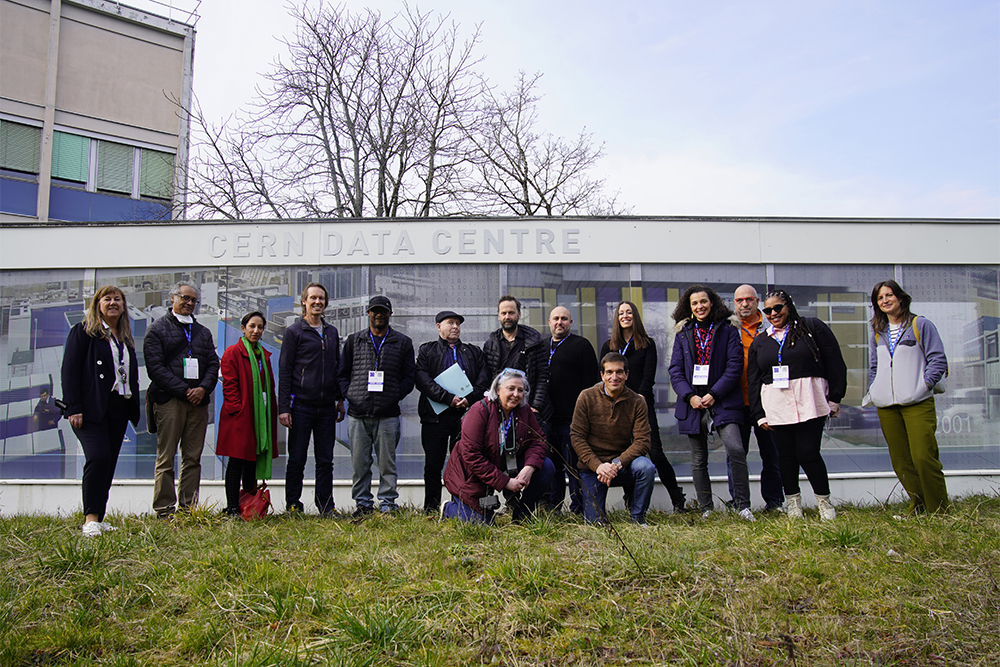The recently launched book Collision: Stories from the science of CERN is the culmination of a unique, two-year-long collaboration between fiction writers and pioneering physicists.

As part of Comma’s Science-into-Fiction series, the project paired award-winning UK writers with leading physicists and engineers working at CERN, to explore different aspects of CERN’s research, as well as its historical legacies, through fiction and accompanying essays (or afterwords) by the scientists.
Professor Rob Appleby, Professor of Accelerator Physics at the Cockcroft Institute and the University of Manchester, helped edit the book. He said: “This unique anthology brings together world class authors with the science of CERN. The resulting stories simply blow your mind.”
The project began in the Summer of 2021 when particle physicists connected to CERN around the world were invited to be part of a new European-wide public engagement project. Over 150 topic submissions from scientists working on different aspects of science were received. Writers were then invited to respond to the list of ideas and were paired with the physicists whose ideas inspired them. We were overwhelmed with positive responses.
March 2022 saw a delegation of selected writers visit CERN in many cases meeting the physicists they’d been paired with. The delegation included science-fiction author Ian Watson (whose credits include the screen story for Spielberg and Kubrick’s film A.I.), BBC National Short Story Award winner Lucy Caldwell, and novelist and screenwriter Courttia Newland (who recently worked with director Steve McQueen on the award-winning Small Axe series).
The final group of writers include those on the CERN visit as well as Dr Who and Sherlock showrunner Steven Moffat, Dame Margaret Drabble, Stephen Baxter (winner of the Philip K Dick and John W Campbell Memorial Award), Adam Marek and others. In the months that followed, writers and scientists continued to work together, exchanging ideas, with the latter acting as consultants to make sure the science is accurately represented.
From the possibilities of interstellar travel using quantum tunnelling to first contact with antimatter aliens, to a team of scientists finding themselves being systematically erased from history, these stories (and their accompanying afterword’s) explore the darkest of matters, under the brightest of lights.
The project was supported by UK Research and Innovation (UKRI) and the Science and Technology Facilities Council (STFC) as part of HL-LHC-UK phase 2.
Prof Rob Appleby, Steven Moffat and Lucy Caldwell will be present at the Hay Festival in Hay-on-Wye (Wales) on Saturday 27 May at 7pm to discuss the book. Tickets for the event can be purchased on the festival website: https://www.hayfestival.com/p-20181-steven-moffat-lucy-caldwell-and-rob-appleby-in-conversation.aspx
